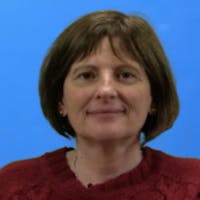Introduction to Satellite Communications
About This Course
How is a satellite built? How do they fly? How do they communicate and how does the network operate? You will get all the answers in this course from teachers and researchers from three schools associated with Institut Mines-Télécom.
The course is made of : teaching videos, equipment demonstrations and simulation programs. They will guide you through the discovery of satellite communications. Professionals in the space field will share there vocation for this scientific and technical sector.
Have you ever wanted to know more about transponders, the geostationary orbit, QPSK modulation, channel coding, link budget, TCP over large bandwdith x delay product links ?
This course is for you! This course is available in English: French-speaking lecturers with English subtitles and fully translated contents (slides, practices).
Course Syllabus
Satellites at our service
-This module provides an introduction to satellite communications. Why using satellites ? What sort of communication services ? How much does it cost ?
Satellite and communications
-This module describes the overall architecture of a satellite communications system, discusses the concept of orbit and what are the typical sub-systems of a satellite
Digital communications
-This module discusses the basics of information transmission
Communication techniques
-This module covers advanced transmission concepts such as modulation and coding. These operations are the core of a communications system impacting the service performance.
Hardware and equipments
-This module lists the equipments that take part to the communication chain on ground and how the overall communication performance can be assessed
Networking and services
-This module explains how services such as voice, television and Internet access are provided by means of communications satellites.
Course presenters
FAQ
What is Coursera?
Coursera is an online education provider that offers online courses, popularly known as MOOCs or Massive Open Online Courses, from top universities around the world. Currently it has over 200 partners from 48 countries. These partners include Universities such as Stanford, Duke, Penn, Princeton, Michigan, Peking, and HEC Paris. Coursera has also started partnering with companies like IBM, Google, and PwC — these companies are also launching courses on Coursera.
Coursera is the most popular MOOC provider in the world based on the number of students (over 45 million learners) and has an active catalog of 3,800+ online courses.
As well as these individual courses and 16 online degrees, Coursera offers 400 groups of courses known as Specializations, MasterTracks, and Professional Certificates.
How do Coursera courses work?
Coursera is an online education provider that offers online courses, popularly known as MOOCs or Massive Open Online Courses, from top universities around the world. Currently, Coursera boasts an active catalog of more than 3800 online courses created by these partner institutions.
Coursera courses consist of pre-recorded video lectures that you can watch on a weekly schedule or when it’s convenient for you. They also have student discussion forums, homework/assignments, and online quizzes or exams.
Generally speaking, Coursera courses are free to audit (i.e. watch videos) but if you want to earn a course Certificate, you will need to pay. An investigation by Class Central discovered 1150+ Coursera courses that include assessments for free although other courses have the assessments behind a paywall.
Many of the Coursera courses are part of Coursera Specializations, a microcredential offered by Coursera. Specializations consist of a sequence of courses and for some Specializations the last course is a Capstone project. If learners earn a certificate for each course in a Specialization, they will receive a Specialization certificate. Specializations are usually geared towards in-demand skills in business and technology. You can take single courses or the whole specialization.
Other courses are grouped into MasterTracks and Professional Certificates. Coursera has launched over 400 microcredentials.
How does a Coursera Subscription work?
Some courses, particularly those in Coursera Specializations, are available on a subscription basis. When you sign up, the first 7 days are free, then you are charged monthly. Check the course or Specialization page to find the cost in US dollars or your local currency. You may also need to check the exchange rate to calculate the cost. The faster you learn, the less you will pay to complete the course or Specialization, in one-month increments.
If you want to complete one or some courses in a Specialization but not the whole Specialization, you need to cancel your subscription after receiving your certificate.
When signing up for Specializations, you cannot select the audit for free option, only a 7-day free trial. To access the materials for free, you need to sign up from the individual course pages. Click on the Learn more link beside the words at the bottom of each course description, available on some Specialization pages. (You can choose to take this course only.)
Coursera Plus is a single payment that gives access to around 3000 courses and Specializations for 12 months.








